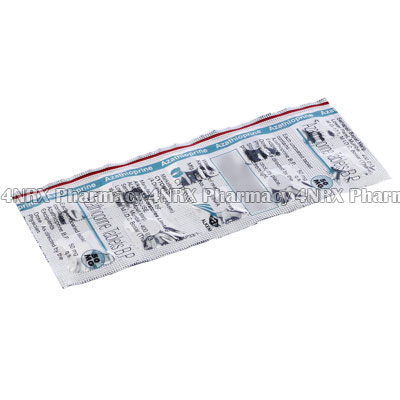 |
Home  Arthritis Arthritis  Azathioprine (Azathioprine) Azathioprine (Azathioprine) |
|
|||||||||
|
|
Azathioprine (Azathioprine)
What is Azathioprine (Azathioprine) used for? Azathioprine (Azathioprine) is an oral immunosuppressant prescribed to prevent the rejection of a recently transplanted organ. The medication operates by reducing the effectiveness of the immune system to prevent it from attacking the foreign tissue of the recently transplanted organ to lower the chances of organ rejection. This action may also make it useful for treating rheumatoid arthritis, autoimmune haemolytic anaemia, autoimmune hepatitis, or other similar conditions. Your doctor may also prescribe it for the treatment of other unlisted conditions. How should I use Azathioprine (Azathioprine)? Azathioprine (Azathioprine) should be used according to your doctor`s instructions to get the most effective results from treatment. The typical dosage is one tablet administered once or twice daily, but the best directions will depend on your age, weight, current health, the condition being treated, and the severity of your symptoms. These should be swallowed with a large glass of water and may be taken on an empty stomach, but it is recommended to eat a meal before use if you get an upset stomach. Never split or chew the tablets before use as this may destroy or alter the effects of their contents. What are the side effects of Azathioprine (Azathioprine)? Side effects associated with the use of Azathioprine (Azathioprine) include:
Contact your doctor immediately if you experience any serious side effects such as severe nausea, painful urination, fever, flu symptoms, sores appearing in or around the mouth, or signs of lymphoma such as feeling full after eating a small amount, increased sweating, severe fatigue, discoloured urine or stools, or jaundice. These conditions any require lower doses, reduced application frequency, or emergency medical attention in serious cases to prevent further health complications from occurring. Please Note Azathioprine (Azathioprine) should not be used by patients who are allergic to mercaptopurine. It is also important to inform your doctor if you have a TPMT deficiency, decreased liver function, or decreased kidney function as these conditions may cause unexpected health problems during treatment. Strictly use Azathioprine (Azathioprine) as prescribed and follow all instructions provided by your doctor. Safe, suitable, and optimum dosage can vary and is dependent on the patient`s health and medical history, as well as the condition you are treating. Azathioprine (Azathioprine) may not be safe or suitable for all patients. Always ensure your doctor is informed if you are pregnant or breastfeeding, using any other type of medication (including non-prescription medicine, vitamins, and supplements), as well as if you have any allergies, other illnesses, or pre-existing medication conditions. Seek immediate medical attention or proceed to your nearest accident and emergency department if you suffer a hypersensitive or allergic reaction. Symptoms usually present during a reaction of this nature include difficulty breathing or swallowing, swelling of the limbs or face, tight chest, hives, and skin rashes. 

|
||||||||||||||||||